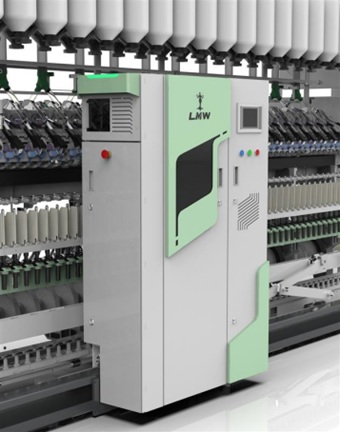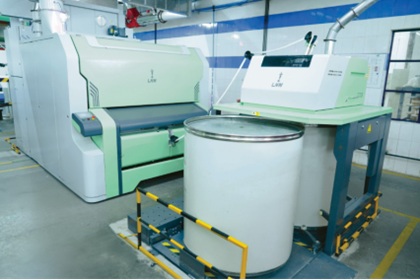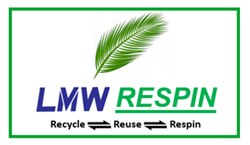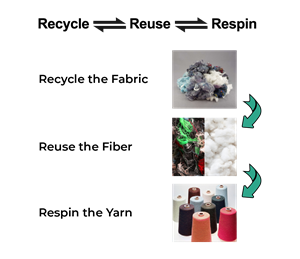Blog
Top Trends in the Spinning Industry for 2025
Introduction
The Indian textile industry is a powerhouse of innovation and economic growth, contributing significantly to the country’s GDP and employment. Among its key segments, spinning mills play a crucial role in producing high-quality yarns that cater to both domestic and international markets.
As we progress into 2025, the textile spinning sector is experiencing a transformation, driven by automation, sustainability, fiber innovation, and global trade expansion. This blog explores the top trends shaping the industry and how leading textile machinery manufacturers like LMW are driving these changes.
1. Automation and Smart Manufacturing: The Future of Spinning Mills
Automation is no longer an option—it is the future of efficient textile production. The integration of smart manufacturing technologies is transforming spinning mills by enhancing productivity, reducing waste, and improving yarn quality.
Key Innovations in Automation
Predictive Maintenance: IoT sensors can be used to monitor various aspects of textile production, such as temperature, humidity, and chemical levels, enabling real-time data collection and analysis. This allows for better quality control and can help identify issues before they become major problems.
LMW’s Spin Connect, a web-based monitoring and control system is an all-in-one application that provides the overall view of spinning mills performance in a single window. The digital system connects all machinery and provides information on production, quality and maintenance. So that management team, technical team, operators can monitor and manage/ maintain spinning mills.
AI-Driven Workflow Optimization: Advanced AI algorithms ensure consistent yarn quality and minimal defects. AI algorithms analyze historical and real-time data to optimize production schedules, raw material usage, and energy consumption.
Ring frame Auto Piecer (RAP), the fully automated yarn piecing system for ring spinning machine, receives information on yarn break through YBS (Yarn Break Sensor) and travels to the particular spindle and automatically pieces the yarn instantly.
LMW’s RAP is a state-of-the-art automation solution designed to reduce manpower by up to 50%, significantly enhancing operational efficiency. With a shorter auto piecing cycle time and a piecing rate of up to 60 per hour, it ensures seamless and precise piecing for improved yarn quality. The system maximizes productivity, achieving an efficiency of over 85%, making it a highly reliable automation tool for modern spinning operations.

Card with Drafting System (CDS): CDS (Card with Drafting System) offers a significant advancement by allowing the process to skip the draw frame. This system integrates the drafting process directly with the carding machine, which helps in maintaining consistent sliver quality and optimizing overall performance.
LMW’s Card LC636 SX with CDS helps achieve consistent quality with higher precision, seamless production and higher output with CDS (Card with Drafting system) which is a game changer in the preparatory spinning process for Airjet spinning.

2. Sustainability: The Shift Towards Green Spinning
Environmental concerns are pushing textile manufacturers to adopt eco-friendly production methods. Sustainable spinning practices are crucial in reducing carbon footprints and meeting global regulatory requirements.


“Recycle, Reuse, Respin”: LMW’s Mantra for a Greener Future
Sustainable Practices in 2025
Energy-Efficient Machinery: LMW’s spinning solutions focus on reducing energy consumption in every process.
Recycling & Circular Economy: LMW RESPIN technology is designed to process recycled fibers, reducing waste in the textile value chain.
Chemical-Free Processing: Spinning mills are increasingly transitioning to biodegradable and organic chemicals to comply with global sustainability standards.
3. The Rise of Technical and Smart Textiles
Beyond traditional fabric manufacturing, technical textiles are emerging as a high-growth sector. These fabrics are engineered for specific functional properties, making them essential for healthcare, defense, automotive, and infrastructure applications.
Growth Areas in Technical Textiles
Medical Textiles: Antibacterial and bioengineered yarns for bandages and surgical applications.
Geo-Textiles: Used in construction, road building, and flood control projects.
Smart Textiles: Wearable technology with embedded sensors and conductive yarns.
4. Fiber Blending Innovations for Enhanced Yarn Performance
The evolution of fiber blending techniques is enhancing yarn durability, strength, and sustainability. By 2025, textile mills will be experimenting with hybrid fibers to create next-generation yarns.
Key Fiber Trends in Spinning
Hybrid Blends: Merging natural and synthetic fibers to improve fabric resilience and feel.
Sustainable Fibers: Increasing demand for recycled polyester, organic cotton, and biodegradable materials.
Nano-Enhanced Fibers: Utilizing nanotechnology for moisture-wicking and UV-resistant textiles.
5. Global Expansion and Strengthening Trade Partnerships
The Indian textile industry is expanding its global reach, with exports playing a crucial role in industry growth. By 2025, textile spinning mills will diversify markets and enhance global competitiveness.
Emerging Export Markets
Africa & South America: Growing demand for affordable, durable textiles.
Turkey & Egypt: Expansion into high-end textile manufacturing markets.
Conclusion: A New Era for Textile Spinning Mills
The textile spinning industry is undergoing a major transformation in 2025, with automation, sustainability, fiber innovation, and global expansion driving the change. As textile manufacturers navigate this evolving landscape, LMW are pioneering advanced solutions to meet industry demands. From energy-efficient machines to automation-driven processes, LMW continues to empower spinning mills with cutting-edge technology. With these advancements, the Indian textile industry is poised to lead the global market, ensuring growth, efficiency, and sustainability for years to come.







 info@lmwtmd.com
info@lmwtmd.com


